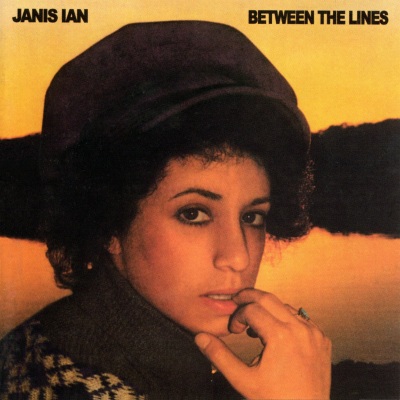
Between the Lines
by Lindsay PlanerThis is Janis Ian's second album from her re-emergence in the early to mid-'70s as one of the genre's most inspired and original singer/songwriters. While this title houses Ian's biggest international hit, the confessional "At Seventeen," the entire effort combines her honest and confessional lyrics with an equally engaging blend of pop/rock and definite jazz and blues. She assembled much of the same ensemble that had worked on her previous long-player, Stars (1975), and much of the material retains the same warmth and intimacy in both her craft as well as the presentation. Unlike the more somber and introverted tracks that dominate Between the Lines (1975), the disc commences with a prime example of Ian's infectious coziness on the light and airy "When the Party's Over." This is one of the title's more straightforward love songs and features an appropriately lilting counter-harmony from Dennis Pereca. More typical are the somewhat dark and oblique "From Me to You," "The Come On," and the despairing title track. Darker still are "In the Winter" and the abject loneliness of "Tea and Sympathy" -- both of which feature some engaging arrangements courtesy of famed arranger/conductor Ron Frangipane, whose clients include Melanie and Townes Van Zandt as well as both John Lennon and Yoko Ono. Underlying the heady orchestration and truly at the center of Ian's skill are her emotively powerful yet reserved melodies. This was undoubtedly a factor in "At Seventeen" becoming a Grammy winner as well as a chart-topping single stateside and a Top 20 hit throughout much of Europe as well as more disparate locations such as Israel. The strength of material and public interest garnered by Between the Lines would continue on her next equally powerful long-player, Aftertones (1976). This album is a recommended starting point for potential enthusiasts, as well as a touchstone to be repeatedly revisited.
